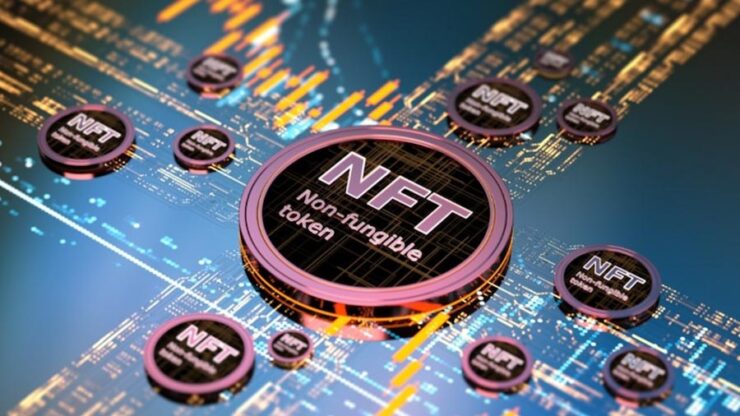Cryptocurrencies have come a long way since the inception of Bitcoin in 2009. Driven by the principles of decentralization, transparency, and security, these digital assets have experienced continuous innovation. In recent years, significant advancements in cryptocurrency coin technology have transformed the space, leading to the emergence of new use cases and applications.
The Potential of Blockchain Interoperability and Its Role in Creating a More Connected Ecosystem

Blockchain interoperability holds immense potential in creating a more connected and cohesive cryptocurrency ecosystem. By enabling different blockchain networks to communicate and exchange information seamlessly, interoperability facilitates cross-chain transactions and collaboration. This connectedness fosters greater flexibility for users and developers, allowing them to access a wider range of services, applications, and even the best crypto coins across multiple networks.
Moreover, it encourages innovation by promoting the sharing of resources, ideas, and solutions among various blockchain platforms. In the long run, blockchain interoperability could play a pivotal role in driving mainstream adoption of cryptocurrencies and blockchain technology, transforming the way digital assets and services are utilized globally.
The Rise of Stablecoins and Their Impact on the Cryptocurrency Market

The rise of stablecoins has significantly impacted the cryptocurrency market by offering a more stable alternative to volatile digital assets. These cryptocurrencies are pegged to reserve assets, typically fiat currencies, ensuring their value remains relatively constant. As a result, stablecoins have gained traction in everyday transactions and have become an attractive option for investors seeking a hedge against market volatility.
Their growing popularity has expanded the use of cryptocurrencies in various sectors, promoting wider adoption and bridging the gap between traditional finance and the digital asset space. Consequently, stablecoins are playing a crucial role in shaping the future of cryptocurrencies.
The Emergence of Privacy-Focused Coins and the Implications for User Privacy

Privacy-focused coins, such as Monero and Zcash, have emerged in response to growing concerns over user privacy in the cryptocurrency space. These coins utilize advanced cryptographic techniques to anonymize user identities and transaction details, providing greater privacy than traditional cryptocurrencies like Bitcoin. While this heightened privacy appeals to users seeking to protect their financial data, it also raises concerns about the potential misuse of illicit activities.
Despite these concerns, privacy-focused coins highlight the increasing demand for secure and private digital transactions. They have also spurred ongoing discussions around striking a balance between user privacy and the need for regulatory oversight in the cryptocurrency market.
The Impact of Decentralized Finance (DeFi) on the Cryptocurrency Market and How It’s Changing Traditional Financial Systems
Decentralized Finance (DeFi) has made a significant impact on the cryptocurrency market, revolutionizing traditional financial systems. Built on blockchain technology, DeFi enables a wide range of services, including lending, borrowing, and trading, without the need for intermediaries. By removing central authorities, DeFi democratizes finance, granting users more control over their assets and fostering financial inclusion.
DeFi’s growth has led to the development of various decentralized applications, contributing to the surge in the cryptocurrency market’s value. As DeFi continues to mature, it is poised to disrupt traditional financial systems further, redefining how financial services are accessed and utilized worldwide.
The Use of Artificial Intelligence and Machine Learning in Cryptocurrency Trading

The use of Artificial Intelligence (AI) and Machine Learning (ML) in cryptocurrency trading has revolutionized the way traders analyze market trends and make decisions. By processing vast amounts of data and identifying patterns, AI and ML algorithms can predict price movements with increased accuracy. These sophisticated trading tools have enabled traders to optimize their strategies, manage risks, and make informed decisions in the highly volatile cryptocurrency market.
Furthermore, AI-powered trading bots can execute trades automatically, allowing for more efficient and high-frequency trading. The integration of AI and ML in cryptocurrency trading has significantly enhanced the trading experience, paving the way for new opportunities and innovations in the field.
The Development of Quantum-Resistant Encryption for Cryptocurrencies to Protect Against Future Threats
The development of quantum-resistant encryption for cryptocurrencies is crucial to safeguard against future threats posed by quantum computing. Quantum computers have the potential to break existing cryptographic methods, including those used by cryptocurrencies, putting digital assets at risk. To counter this, researchers are working on post-quantum cryptography, which employs advanced algorithms that remain secure even against quantum attacks.
Implementing quantum-resistant encryption in cryptocurrencies will ensure the long-term security of digital assets and maintain user confidence in the technology. Proactively addressing this emerging threat is vital for the continued growth and stability of the cryptocurrency market and the broader blockchain ecosystem.
The Potential of Non-Fungible Tokens (NFTs) and Their Role in the Future of Digital Ownership and Asset Management

Non-Fungible Tokens (NFTs) have unlocked new possibilities in digital ownership and asset management, representing a paradigm shift in how we interact with digital content. NFTs enable unique digital assets, such as art, collectibles, and virtual real estate, to be represented and traded on the blockchain. They provide creators and collectors with an unprecedented level of control, authenticity, and traceability for their digital assets.
As NFTs continue to gain mainstream attention, they are expected to reshape industries such as gaming, entertainment, and media. NFTs’ potential to revolutionize digital ownership and asset management highlights the expanding influence of blockchain technology across various sectors.
The Use of Smart Contracts and Their Role in Creating More Efficient and Secure Transactions on the Blockchain
Smart contracts play a pivotal role in enhancing the efficiency and security of transactions on the blockchain. As self-executing contracts with terms and conditions directly coded into them, smart contracts eliminate the need for intermediaries and reduce the potential for human error. By automating processes and executing transactions only when predefined conditions are met, they provide greater transparency, trust, and speed in various applications, such as financial services, supply chain management, and real estate.
The growing adoption of smart contracts is a testament to their transformative potential in streamlining transactions, fostering innovation, and shaping the future of blockchain-based solutions.
Conclusion
Cryptocurrency coins have come a long way since their inception, with developers constantly working to improve the technology and make it more secure. With the introduction of advanced technologies such as smart contracts and decentralized exchanges, cryptocurrency coins are becoming increasingly popular among investors. As this technology continues to evolve and new advancements are made, there is no doubt that we will continue to see even greater development in this field in the years ahead.

